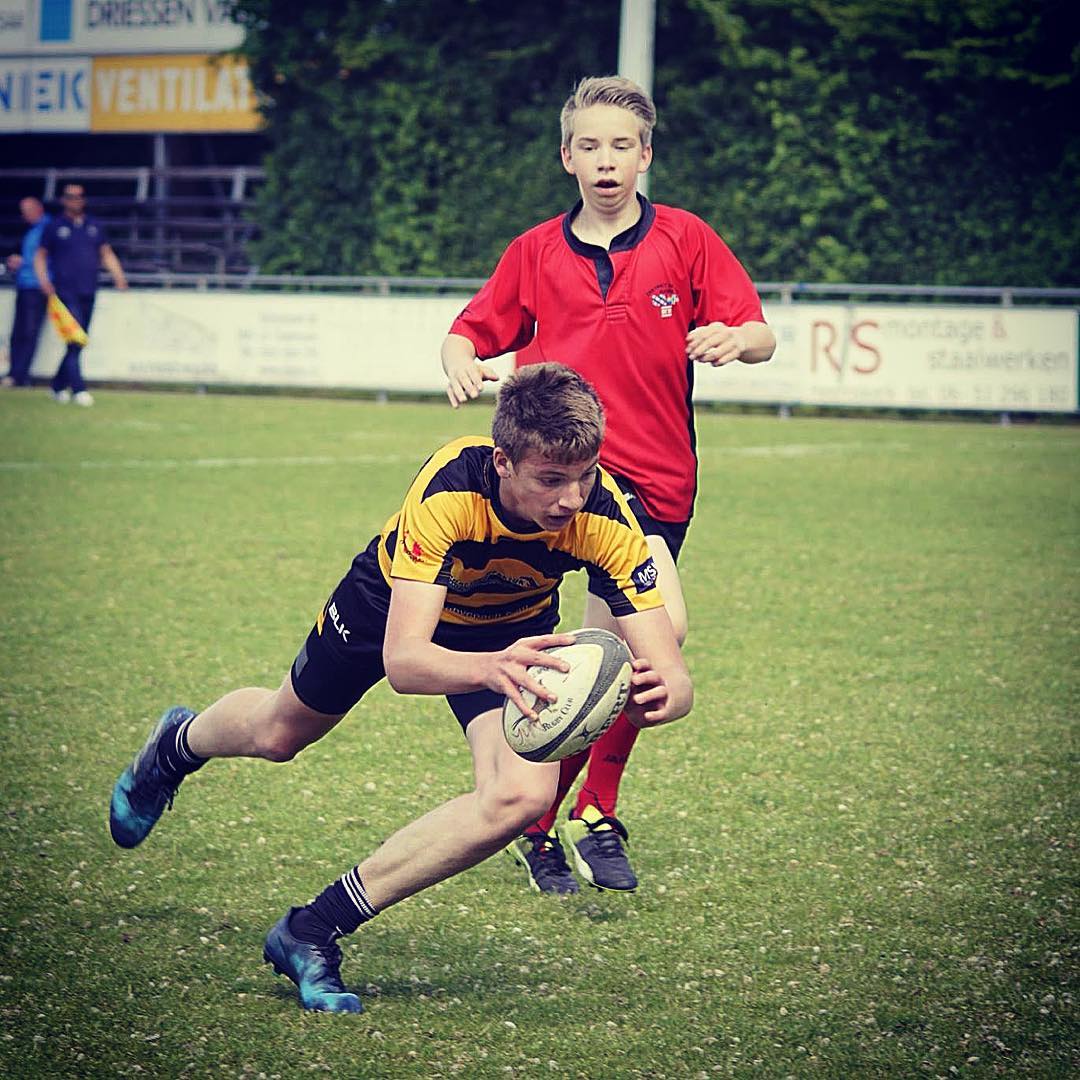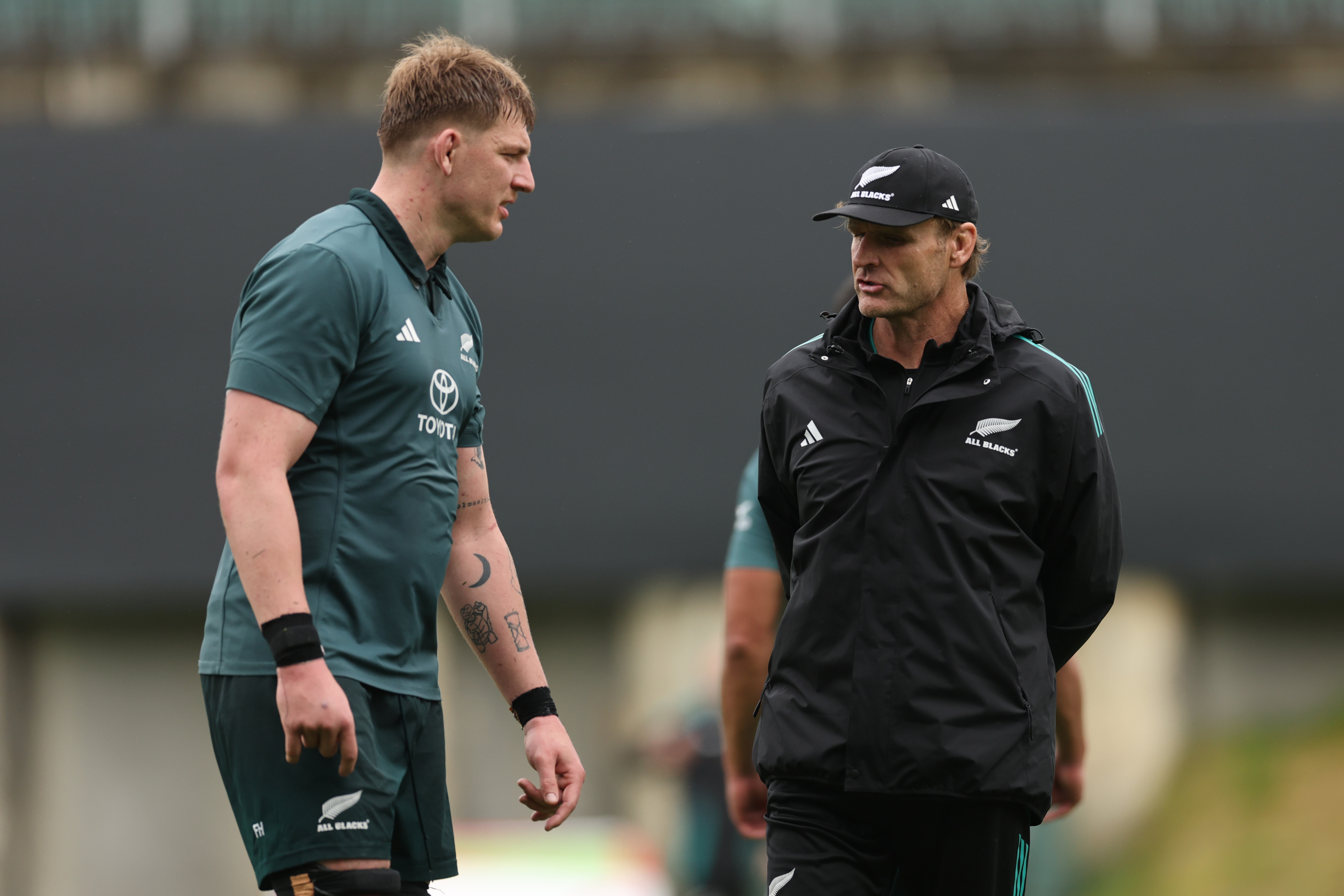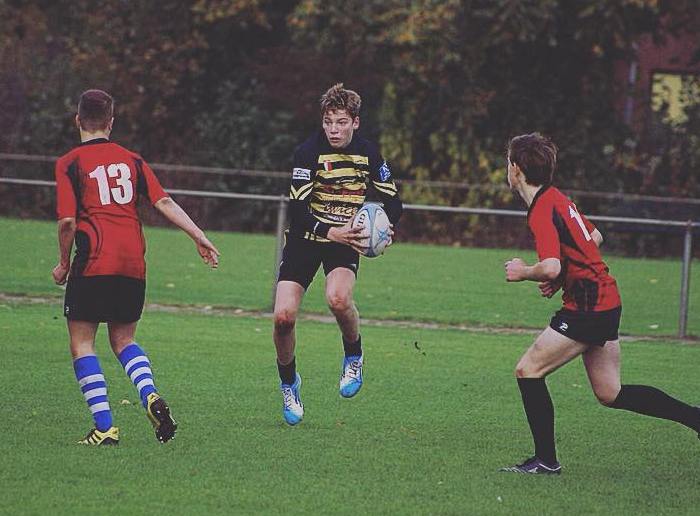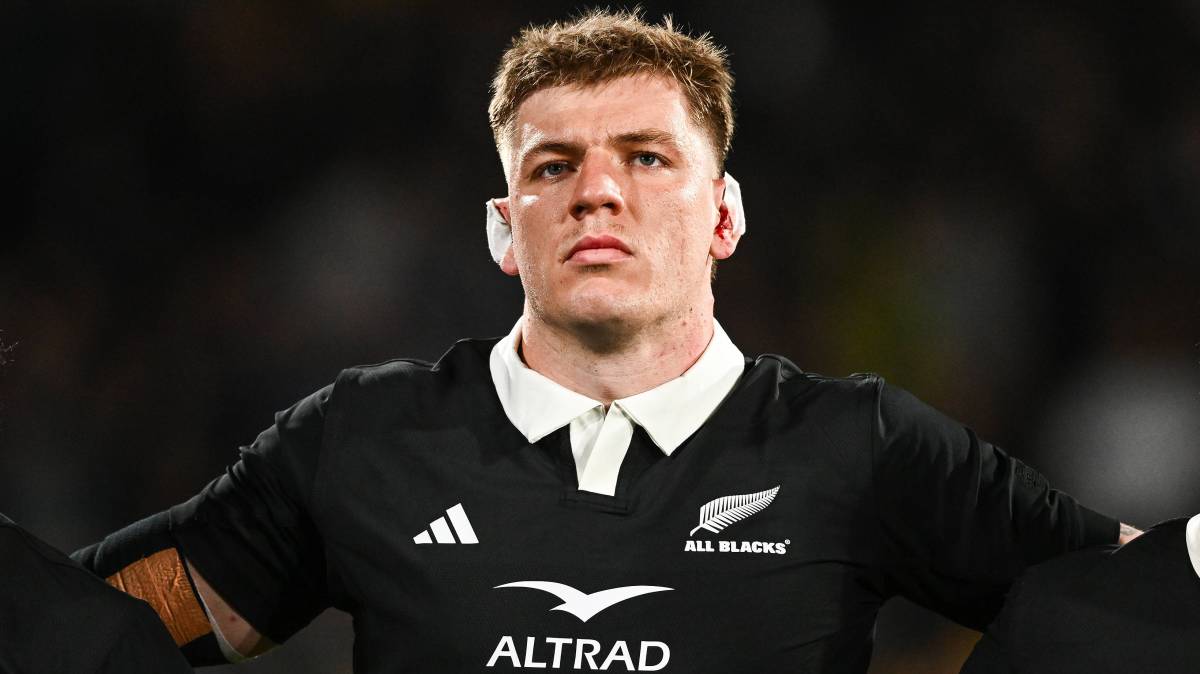While the Netherlands rugby team sit 26th in the world rankings, just between Zimbabwe and Namibia, the country has produced one of the game’s rising stars. He will not be playing for the Dutch national team any time soon, though, because Fabian Holland has been making a name for himself in New Zealand’s second row, fulfilling an unlikely ambition he had harboured since seeing the All Blacks play on television as a five-year-old growing up in Castricum, a small town north of Amsterdam.
To further his rugby education Holland left the Netherlands at the age of 16 and New Zealand has been his home ever since. Six years after making the move he made his debut for the All Blacks against France in July. “He’s come a long way,” Scott Robertson, the New Zealand head coach, said upon selecting Holland for the first time. “It’s pretty single-minded from a kid to make that call to come over and represent another country in a game he loves. It’s movie stuff, isn’t it?”
Holland, 22, who is 6ft 8in and weighs 19st 7lb, took the step up to international level in his loping stride. He started all three Tests in the home series against France, which the All Blacks won 3-0, and has since been proving his mettle in the Rugby Championship, most recently in the 33-24 victory over Australia in Auckland last Saturday. The tournament reaches a climax this weekend, with New Zealand travelling to Perth for a rematch with the Wallabies while lying second in the table behind South Africa, who face Argentina at Twickenham.

Holland signed professional terms with the Highlanders in 2022 having previously represented New Zealand schools
JOE ALLISON/GETTY IMAGES
The pantheon of great Dutch rugby players is sparsely populated, to say the least. The one player to previously make his mark outside the Netherlands was Tim Visser, who was spotted by Newcastle Falcons playing in the Amsterdam Sevens tournament and was offered a scholarship through the club’s links with Barnard Castle School in Durham. After impressing with Falcons, Visser, a powerful wing, moved to Edinburgh and qualified through residency to play for Scotland, going on to win 33 caps.
Visser had the advantage of coming to the game through his father, Marc, who had played for the Dutch national team. There were no such family links for Holland, who simply came across a video of a rugby match and was immediately entranced. “I first saw rugby when I was about five years old,” he said. “I used to be into soccer and that kind of stuff, like every Dutch kid is. But I was quite big and I wanted to do a more physical sport, where I could use my size. I realised rugby could be that sport. I tried it and I’ve loved it ever since.”
As it happened, that first game he watched featured New Zealand and soon there were posters of All Blacks on his bedroom wall. To feed the obsession his father would record all seven Super 14 matches on a weekend and Holland would sit down to watch one every evening, starting the process again the following week. He began to play the game at his local club, Castricumse, who play in the Ereklasse, the Dutch top tier, and his fondness for the All Blacks was stimulated further when New Zealand’s sevens team held a training session at his club.
Holland kept growing, too, and when he was 16 his parents arranged for him to move to New Zealand for six months and board at Christchurch Boys’ High School, one of the great nurseries of future All Blacks, whose star-studded list of alumni features the likes of Dan Carter, Andrew Mehrtens, Brodie Retallick and Will Jordan.

Holland began his rugby journey with Castricumse, his local club
That initial six-month stint turned into two years as Holland revelled in the chance to immerse himself in the game and to develop himself with some high-class coaching. Once he had begun to show his promise, he was never going back and New Zealand were never going to let him go.
He was chosen to represent the New Zealand schools team and when he left school he was taken on by the Highlanders, based in Dunedin, to play in their under-20 squad. In the four years since then Dunedin has become his home town and Holland has continued to go from strength to strength, playing for New Zealand Under-20 and signing a professional contract with the Highlanders in 2022.
Apart from the obvious attributes of his size, Holland is known as a potent ball-carrier and a smart lineout operator, but his calling card is a phenomenal work-rate. He played 80 minutes in each of those first three Tests against France and, in the third Test in Hamilton, he raised eyebrows by hitting 52 rucks. “I’ll keep going until the wheels fall off,” Holland has said.

Robertson, right, has described Holland’s rise from the Netherlands to a fully fledged All Black as “movie stuff”
PHIL WALTER/GETTY IMAGES
He has come along at an opportune time for New Zealand, too, as there had been concerns about the stock of emerging locks since the retirements of Retallick and Sam Whitelock two years ago. Scott Barrett has since become captain and Patrick Tuipulotu remains a force, but Holland is now being seen as a long-term fixture in the All Blacks’ engine room.
Remarkably, he is not the only Dutch rugby player coming through the ranks. The other is his younger brother, Quinten, who has also moved to Dunedin and has represented New Zealand schools as a promising lock or blind-side flanker. Three years younger than Fabian, he is now looking to emulate his brother by graduating from the Highlanders academy into the senior side. Quinten’s twin sister, Franka, plays for the Dutch national side.

Holland first saw rugby when he was five years old and was immediately hooked on the game
He has a fair example to follow. There is little room for fluffy fairytales in the hard-nosed world of New Zealand rugby but when Fabian Holland is asked about his improbable journey from Castricum to fulfilling his All Blacks dream, his reply remains wide-eyed, an otherwise bona fide Kiwi accent still carrying an unmistakable Dutch lilt.
“As long as you have the right people around, you’re willing to work hard, literally anything is possible,” he said on winning his first cap. “To go from such an untouchable goal to being [an All Black] is pretty special. It’s been a dream from a young age. But this is where the hard work starts.”

